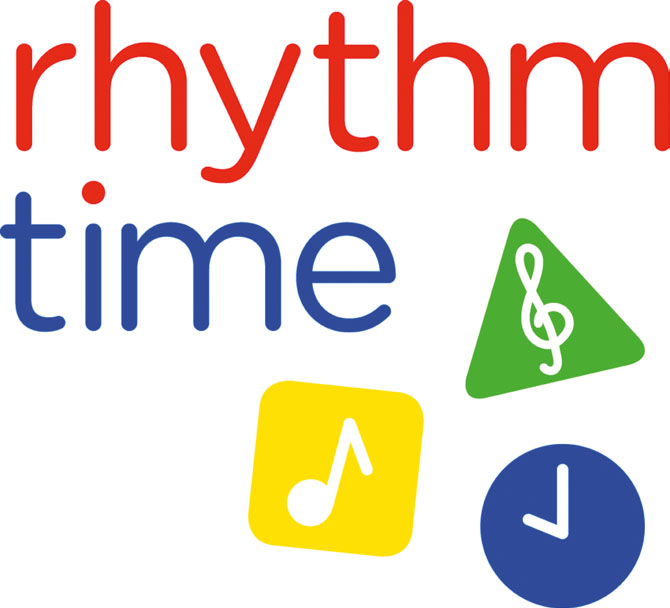
This year marks the 21st anniversary of Rhythm Time, a network of 40 franchises providing music classes for the early years across England and Ireland. The franchise was started by musical entrepreneur Kathy Doolan, who has now reached out to more than 200,000 children through the network of Rhythm Time classes.
Rhythm Time has attracted a diverse set of parents and children, and currently it works with more than 11,000 babies and toddlers every week. Doolan's work in building and growing the company was recognised last year, when she made the shortlist for the Best Business Women Awards 2017 for her work introducing children to music.
THE POWER OF MUSIC
Speaking about the very beginning of her journey, Doolan says: ‘When I started classes 22 years ago all I had was my box of instruments, my energy, and my love of music and singing. I was so passionate about the power of music and the part it plays in child development that I wanted to share Rhythm Time with as many children and families as possible.’
Doolan's evident success could only go so far until she looked to expand the business and introduce new teachers to the Rhythm Time network. She describes watching the business grow and how what had been a one-woman show turned into a franchise system.
‘The classes and demand grew very quickly and it was soon apparent that I couldn't teach all the classes myself,’ she says. ‘So I recruited my first class leader, Frances. Frances loved teaching the classes and when she moved out of the area, she became my first franchisee. She's still with me to this day, 18 years on. She has over 1,500 children attending classes weekly and is my largest franchise.’
The passion of a teacher can really make or break a music class, and maintaining the standards of something so personal to Doolan meant that finding like-minded teachers was crucial if Rhythm Time was to grow and maintain its core values.
When looking for new recruits, she worked at first by word of mouth and then began to advertise positions. She describes the key characteristics to be found in every Rhythm Time teacher: ‘I look for a good level of musicality, a tuneful singing voice, a love of children and music, and a desire to run a business.’
At the core of Rhythm Time's teaching principles is the encouragement of learning and understanding through song. ‘Singing gives everyone access to music without any technical knowhow of playing an instrument. Our voice is our own very personal, unique instrument.’
Fans of her method say this combination of a business mind and exceptional teaching is part of what has made Rhythm Time the success that it has become. There is always debate about how far music can aid other learning in the early years, but Rhythm Time remains a strong advocate of the idea that music really can change the future of young children.

‘Rhythm Time helps younger children because music is the only activity that stimulates and activates all parts of a child's brain,’ says Doolan. ‘Exposure to music increases cell changes in the brain concerned with speech, memory, movement, creativity, reasoning and emotional intelligence.’
WORKING TOGETHER
Doolan also believes that music education in the early years can make a difference to children as they get older and start their school lives. ‘Early music education really does prepare a child for school. Through music and singing they become more confident learners and better listeners. They learn to share and work together in an ensemble.’
Although Doolan started Rhythm Time through a love of music and a desire to share it with children, in recent years she has come to see the scientific benefits of music education as well.
‘Through my years of teaching I have seen many children develop and flourish in our classes. Much research has been done in recent years to prove how music is fundamental to children's development. Studies have shown that in the brains of babies, children and grown-ups alike, language and music abilities rely largely on the same overlapping neural networks. During their early years, a child's musical and linguistic development are indistinguishable from one another and in fact children will sing before they develop linguistic abilities.’
Rhythm Time's journey has not only shaped the lives of children all over the UK and Ireland, but has also been of great personal significance, says Doolan.
‘Watching Rhythm Time grow over the years has been a pleasure and a joy. I'm genuinely proud of all the children who have come to classes. We've seen so many children come to us and it has been wonderful to see their progress and ongoing achievements. Some have even gone on to become fabulous musicians!’
Despite Doolan's personal success in creating Rhythm Time and the awards she has been nominated for, she still believes her biggest success lies in the relationships she has formed with colleagues and their collective support to put into practice the power that music has to alter children's futures.
‘It has been very rewarding nurturing children's musical abilities and seeing them develop and grow. However, my biggest success has been growing my franchise network. They are a fantastic team of dedicated, enthusiastic teachers who believe in the power of music to change lives.’








